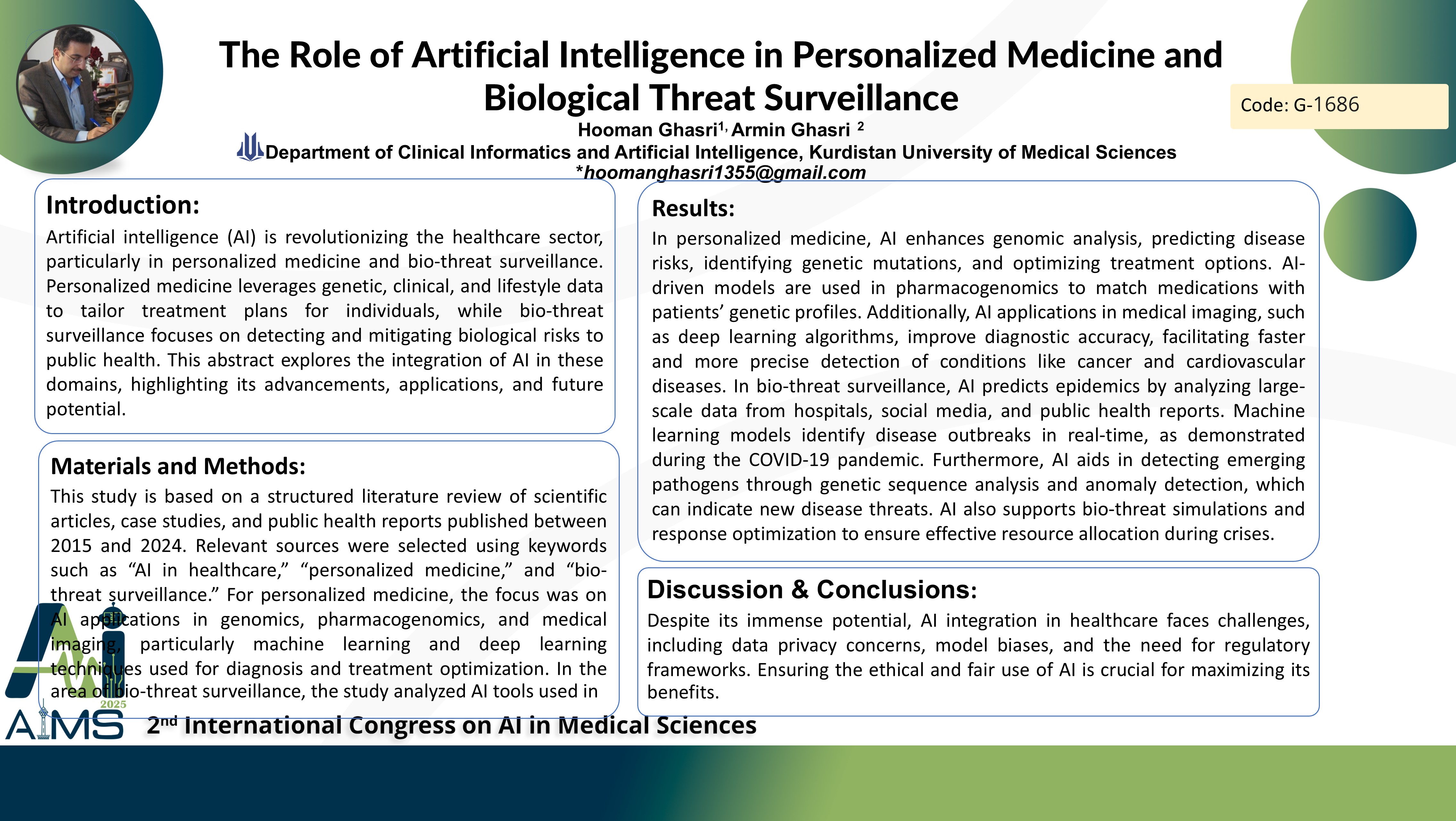The Role of Artificial Intelligence in Personalized Medicine and Biological Threat Surveillance
Code: G-1686
Authors: Hooman Ghasri * ℗, Armin Ghasri
Schedule: Not Scheduled!
Tag: Cancer Diagnosis & Treatment
Download: Download Poster
Abstract:
Abstract
Background and Aims: Artificial intelligence (AI) is revolutionizing the healthcare sector, particularly in personalized medicine and bio-threat surveillance. Personalized medicine leverages genetic, clinical, and lifestyle data to tailor treatment plans for individuals, while bio-threat surveillance focuses on detecting and mitigating biological risks to public health. This abstract explores the integration of AI in these domains, highlighting its advancements, applications, and future potential. Method: This study is based on a structured literature review of scientific articles, case studies, and public health reports published between 2015 and 2024. Relevant sources were selected using keywords such as “AI in healthcare,” “personalized medicine,” and “bio-threat surveillance.” For personalized medicine, the focus was on AI applications in genomics, pharmacogenomics, and medical imaging, particularly machine learning and deep learning techniques used for diagnosis and treatment optimization. In the area of bio-threat surveillance, the study analyzed AI tools used in epidemic prediction, pathogen detection, and crisis response. Special attention was given to AI systems applied during the COVID-19 pandemic. The data were qualitatively analyzed to identify major applications, technological trends, and shared challenges across the two domains Results: In personalized medicine, AI enhances genomic analysis, predicting disease risks, identifying genetic mutations, and optimizing treatment options. AI-driven models are used in pharmacogenomics to match medications with patients’ genetic profiles. Additionally, AI applications in medical imaging, such as deep learning algorithms, improve diagnostic accuracy, facilitating faster and more precise detection of conditions like cancer and cardiovascular diseases. In bio-threat surveillance, AI predicts epidemics by analyzing large-scale data from hospitals, social media, and public health reports. Machine learning models identify disease outbreaks in real-time, as demonstrated during the COVID-19 pandemic. Furthermore, AI aids in detecting emerging pathogens through genetic sequence analysis and anomaly detection, which can indicate new disease threats. AI also supports bio-threat simulations and response optimization to ensure effective resource allocation during crises. Conclusion: Despite its immense potential, AI integration in healthcare faces challenges, including data privacy concerns, model biases, and the need for regulatory frameworks. Ensuring the ethical and fair use of AI is crucial for maximizing its benefits.
Keywords
AI, Personalized Medicine, Bio-Threat Surveillance, Genomics
